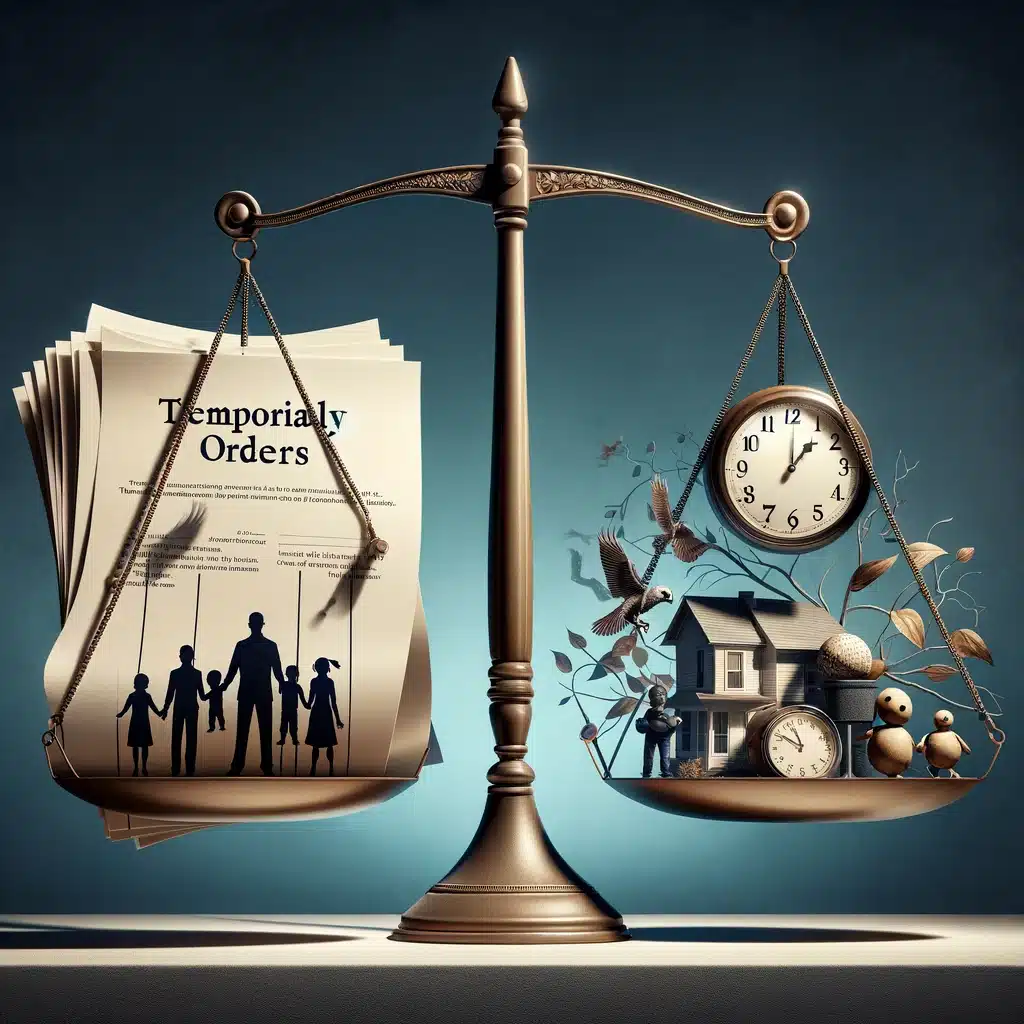
How the steps for divorce in Texas might impact your future depends on the decisions you make throughout the legal process. Divorce affects more than just your marital status. It influences your financial health, living arrangements, relationships and long-term plans. Every step you take holds consequences that can shape your future in significant ways. Understanding the divorce process in Texas helps you avoid unnecessary complications and prepare for the next phase of life with clarity.
Filing for Divorce: The First Legal Move
The process begins when one spouse files an Original Petition for Divorce with the court. This step initiates the legal action and formally notifies the other party. The spouse who files becomes the petitioner and the other becomes the respondent. This document outlines the basic claims and may include requests for property division, child custody or spousal support. Filing this petition triggers a mandatory 60-day waiting period before the court can finalize the divorce. During this time both spouses can start gathering necessary information and planning their next steps.
Responding to the Petition and Court Jurisdiction
Once served the respondent must file a formal response within a set timeframe, usually 20 days. This response allows the respondent to state their position and potentially contest the claims made in the petition. If they fail to respond the court may issue a default judgment. Texas courts only have jurisdiction if at least one spouse has lived in the state for six months and in the county for 90 days. Meeting these residency requirements is crucial or the court may not proceed with the case.
Temporary Orders and Initial Hearings
Courts often issue temporary orders to establish guidelines while the divorce is pending. These may address child custody, visitation, use of property or temporary support. These orders help maintain stability and prevent disputes during the divorce process. Initial hearings provide a chance for both parties to express concerns and present their positions. The judge may use these hearings to issue or modify temporary orders. Temporary decisions can influence final outcomes especially in high-conflict cases.

Discovery and Financial Disclosures
Discovery is the phase where both spouses exchange essential information. Each party must disclose financial details such as income, assets, debts and expenses. Accurate financial records are vital for fair property division and support determinations. Discovery may involve written questions, document requests or depositions. If one party refuses to cooperate the court can impose penalties. Being transparent helps build trust and encourages quicker resolution. This stage also provides a clear picture of each spouse’s financial standing.
Negotiation and Settlement Talks
Texas encourages divorcing couples to resolve issues through settlement whenever possible. Negotiation allows both sides to retain control over outcomes and avoid lengthy court proceedings. Common topics include asset division, parenting plans and financial support. Mediation is a popular method for resolving disputes with the help of a neutral third party. A successful mediation results in a written agreement signed by both parties. Courts typically approve these agreements if they meet legal standards. Negotiation leads to more peaceful resolutions and lower legal costs.
Property Division and Asset Distribution
Texas follows community property rules. Property acquired during the marriage is considered jointly owned. During divorce courts divide community property in a manner that is “just and right.” This does not always mean a 50-50 split. Courts consider each spouse’s financial situation, earning potential and contribution to the marriage. Separate property such as assets owned before marriage or acquired by gift or inheritance remains with the original owner. How the steps for divorce in Texas might impact your future depends heavily on how assets are classified and divided. Clear documentation and legal guidance help protect your financial interests.
| Type of Property | Ownership and Division Rule in Texas |
| Community Property | Owned equally by both spouses if acquired during the marriage. Divided fairly. |
| Separate Property | Owned by one spouse before marriage or received as a gift/inheritance. Not divided. |
| Real Estate (e.g., home) | Considered community property if bought during marriage. Subject to fair division. |
| Retirement Accounts | Contributions during marriage are community property. Divided accordingly. |
| Debts | Shared debts are typically divided. Each spouse may be responsible for a portion. |
| Business Interests | Valued and divided based on contributions and ownership during the marriage. |
Determining Child Custody and Support
Child custody decisions are based on the best interest of the child. Texas law favors joint managing conservatorship when possible. This means both parents share responsibilities but one may have primary residence rights. Courts evaluate each parent’s relationship with the child, ability to provide stability and willingness to cooperate. Child support is calculated using state guidelines and based on the income of the non-custodial parent. Additional factors include medical costs and educational needs. Parenting plans outline custody schedules, holidays and decision-making responsibilities. These plans must prioritize the child’s emotional and physical well-being.

Spousal Maintenance and Financial Impact
Spousal maintenance, often called alimony, may be awarded in limited situations. It applies when one spouse cannot meet basic needs after divorce. Courts consider the length of the marriage, financial resources, education and employment history. Maintenance can be temporary or long-term depending on the circumstances. It is usually limited to shorter durations and capped by statute. How the steps for divorce in Texas might impact your future is evident in the financial obligations each party assumes. Planning for support payments or adjusting to a single-income lifestyle requires careful budgeting and professional advice.
Final Decree and Legal Closure
The divorce concludes with a final decree issued by the court. This document formalizes all decisions regarding property, custody and support. Both parties must follow its terms or they risk legal consequences. The decree also includes instructions for implementing asset transfers or name changes. Once the judge signs the decree the marriage is legally ended. Parties should retain a copy for future reference. Any modifications such as changes in custody or support must go through the court to be valid.
Post-Divorce Adjustments and Life Planning
Life after divorce involves many adjustments. Individuals may relocate, find new employment or restructure parenting arrangements. Creating a realistic financial plan helps ease the transition. This includes updating insurance, retirement accounts and estate plans. Emotional recovery also takes time. Support from friends, therapists or support groups can aid healing. Staying organized and maintaining communication with your co-parent promotes smoother interactions. How the steps for divorce in Texas might impact your future is shaped by how well you adapt and plan. Thoughtful decisions now can lead to a more stable and fulfilling life ahead.
Long-Term Legal and Financial Consequences
The effects of divorce extend beyond the courtroom. Credit scores may change based on how debts are handled. Individuals might face tax implications, especially with support payments or asset sales. Future relationships can also be influenced by past agreements. For example a poorly drafted parenting plan can lead to years of conflict. Periodic reviews of your legal documents ensure they reflect your current needs. Consulting professionals for long-term planning minimizes unexpected problems. Understanding each step reduces stress and prevents costly mistakes.
Planning for Children and Their Future
Divorce affects children differently based on age, personality and family dynamics. Consistency, reassurance and open communication help children adjust. Involving both parents in decisions fosters emotional security. Long-term education plans, healthcare coverage and extracurricular involvement should be addressed in the parenting plan. School records and custody terms must align to prevent confusion. Courts expect both parents to act in good faith. How the steps for divorce in Texas might impact your future includes how well your children adjust and thrive. Their stability depends on cooperation and mutual respect between parents.
Legal Representation and Expert Support
Hiring a knowledgeable family law attorney ensures your rights are protected. An attorney helps interpret complex laws, draft agreements and represent you in court. They provide advice tailored to your specific situation. Legal professionals also manage communication and paperwork, reducing your stress. Financial advisors, therapists and mediators may also play a role. Together this team guides you through each phase. Their support improves outcomes and builds confidence. Professional help prevents common pitfalls and creates a smoother legal process.
Emotional Wellness and Self-Care
Divorce is emotionally draining. Stress, anxiety and grief are common. Self-care is vital for healing and resilience. Exercise, hobbies and routine can provide comfort. Therapy offers a safe space to express feelings and gain perspective. Staying socially connected prevents isolation. Journaling or mindfulness practices can also support mental health. Personal growth often follows life transitions. Use this time to explore new goals, interests and relationships. Emotional strength leads to better choices and a healthier future.

In Ending: Preparing for the Road Ahead
How the steps for divorce in Texas might impact your future becomes clearer with preparation and knowledge. Every legal move you make carries weight. From filing paperwork to finalizing custody, each step influences your emotional, financial and personal well-being. With the right support, thoughtful planning and informed decisions you can turn this difficult time into a foundation for growth. Embrace the process as a path to stability and renewal. Focus on building a life that reflects your values, priorities and future goals.
The conclusion of a divorce is not simply the end of a legal procedure It marks the beginning of an entirely new chapter. Once the final decree is signed your focus must shift to rebuilding your daily routine, stabilizing your financial footing and creating a peaceful environment for yourself and your family. It’s a time to reassess personal goals, professional aspirations and your support system. Take the opportunity to redefine your future on your own terms. Surround yourself with people who encourage your progress and align with your vision.
Stay proactive about legal obligations and continue monitoring changes in your life that may require updates to custody plans or financial arrangements. Long-term success depends on your ability to adapt, plan and remain resilient. Divorce does not define your story it simply reshapes it, giving you the tools to create a future that is intentional, secure and full of promise.
Other Related Articles:
- Breaking Down the Steps of Divorce Law In Texas
- Breaking Down the Steps of Divorce Lawyers In Texas Free Consultation
- Breaking Down the Steps of Simple Divorce In Texas
- Insight Into the Steps in the Texas Divorce Process
- Breaking Down the Steps of How Much Does A Divorce Cost In Texas
- Requirements for an Uncontested Divorce in Texas – Simplified Steps
- Can I Get a Quick Divorce in Texas: Steps and Tips
- How to Navigate the Basic Steps to Filing a Divorce in Texas with Confidence
- 7 Steps for Creating a Positive Divorce
- Final steps of a divorce in Texas





